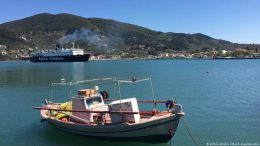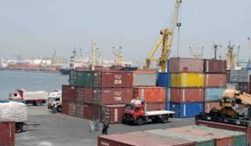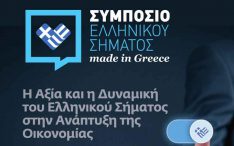Tag: Greece
-

JOINT COMMUNIQUÉ-2nd Rhodes Ministerial Conference for Security and Stability “Living and Working together in Peace and Stability” – Rhodes, Greece, 22-23 MAY 2017
The 2nd Rhodes Informal Ministerial Conference for Security and Stability took place on the 22 and 23 of May 2017, under the theme “Living and Working together in Peace and Stability”. The participating Ministers of Foreign Affairs and High Officials from Albania, Algeria, Bulgaria, Cyprus, Egypt, Greece, Italy, Kuwait, Lebanon, Libya, Oman, Qatar, Romania, Saudi…
-

Greece expects tourism record for 2017
A record number of tourist visitors in 2016 was not enough, but it did certainly do the country good. As the 2017 tourist season starts, the industry is banking on an even better year.The tourist season in the old harbour of Skopelos island off Greece’s eastern coast is starting, as it often does, in a…
-

Value of trade between Egypt, Greece drops to $1.3bn in 2016
Trade exchange between Egypt and Greece dropped 21.9% in 2016 to $1.3 billion from $1.7 billion in 2015, said chairman of the Greek side to the Egyptian-Greek business council Ioannis Yiotis. Yiotis was addressing the third forum of the council which was hosted by the Egyptian Businessmen Association on Wednesday. He asserted that both sides work on promoting economic relations,…
-

Greek seal to expand to more types of commodities
The Athens Chamber of Small and Medium-Sized Industries (BEA) is planning to expand the use of the mark indicating products of Greek origin to non-food categories, such as apparel, furniture and toys. This effort started in the summer of 2015, but without any substantial response from the competent Ministry for the Economy and Development. Now…
